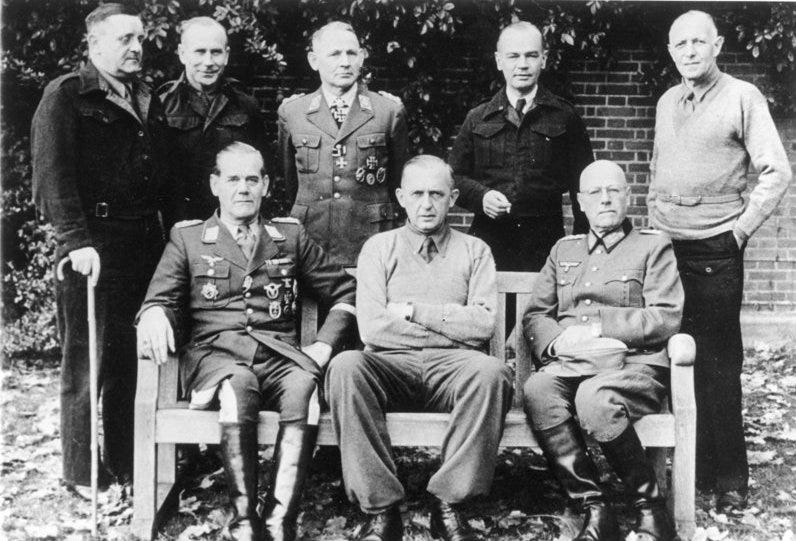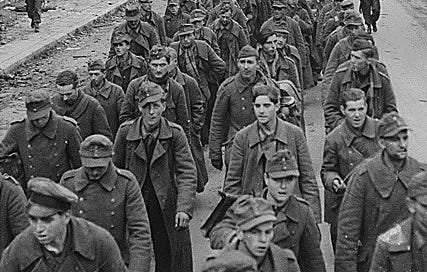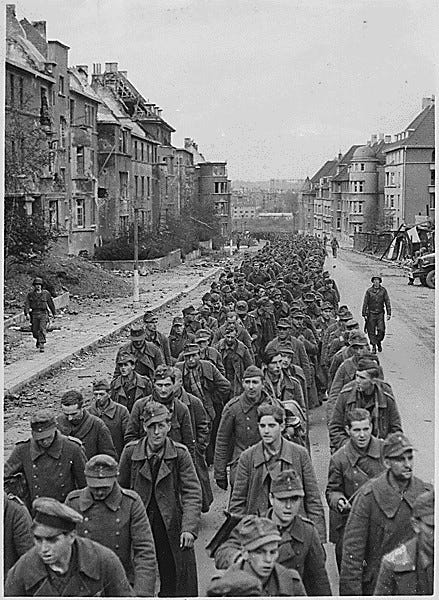In Aachen, a tearful surrender
At 10:55 a.m. on Oct. 21, 1944, Oberst Gerhard Wilck emerged from a heavily fortified bunker in Aachen alongside two American prisoners bearing a white flag. A little over an hour later, the first German city to fall to Allied troops officially and unconditionally surrendered.
Aachen’s fate had been inevitable for several days, though the garrison held out for three weeks in the face of Allied attacks. In that context, stories of the capitulation of the German commander had almost a theatrical feel, as evidenced by the overwrought first sentence of New York Times correspondent Harold Denny’s front-page dispatch:
“The last despairing opposition in the desert of death and strewn ruins that used to be the prosperous city of Aachen broke down suddenly this morning.”
Wilck’s despair stemmed mostly from fears about the safety of his family back home as he committed what he knew to Hitler would be the unforgivable sin of surrendering on German soil. But the Germans simply were out of options, having been backed into a corner — albeit one featuring eight-foot-thick concrete walls.
The 46-year-old Prussian, a professional soldier since age 18, would lay out his reasoning in a public address to the 800 or so troops who remained under his command — a farewell speech approved in advance by U.S. officers and dutifully recorded by the correspondents on hand.
William Strand of the Chicago Tribune shared the message Wilck conveyed from atop the hood of a jeep:
Dear German soldiers, I am speaking to you at a painful moment. I was forced to surrender because we ran out of ammunition, food and water. I saw future fighting was useless. I have acted against orders. I was supposed to fight to the last man. At this time I have to remind you that you are German soldiers. Please behave as such. I also wish you the best of health in your future travels and a fast return to the fatherland after hostilities have ended. We must all return to Germany to help rebuild our country.
I was refused by the Americans the authority to give a Sieg Heil or Heil Hitler. But we can still do it in our hearts.
Having said his piece, Wilck took his place at the front of the line as “captured troops walked out of Aachen in long, melancholy columns of four,” as Associated Press correspondent William Smith White described it.
German civilians stood alongside the road at intervals, some expressionless and others waving to the departing soldiers. “One woman rushed from a doorway with a pot of hot coffee and poured cups for the German troops as they walked along,” White wrote.
As for the citizens’ response to their new occupiers, wrote Denny, “though most of them ignored us or looked hard, a dozen more smiled and saluted us in that gesture we so often see but neither understand nor like.”
When the last of the German troops had been locked up in prisoner of war cages outside town, wrote Strand, “Wilck’s stern Prussian facade crumbled and he wept, his shoulders staking with convulsive sobs.”

German officials did indeed take note of Wilck’s treachery, producing a leaflet that featured his picture and the headline “He bears the guilt” before going on to both blame him for the destruction of Aachen and castigate him for acting in his own self-interest by surrendering so he could finish the war “in peace and security” at a POW camp in England.
Wilck would live for 40 more years after the war, dying in 1985 in Rheinbreitbach, Germany.




